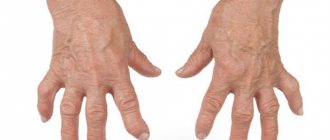To understand whether there was weight loss, you need to understand some details. Probably every person who has been on a diet for a long time has encountered a situation where the weight stays the same, despite dietary restrictions and strict adherence to diet recommendations. In addition, weight may go away, but volumes remain the same or decrease slightly.
If you want a quick answer to the question “why can’t I lose weight”, then let’s say: option one - there is nowhere to lose weight further. Option two - even by reducing your diet, you physically expend less energy than you absorb. Option three - you don’t know what food gives you how much energy, and what exercises burn how much fat.
You take medications that contribute to weight gain
Some drugs can cause extra pounds to appear for various reasons. Most often, oral contraceptives and antidepressants have such an insidious effect. If the mechanism of the effect of antidepressants on weight is still being discussed, then with contraceptive drugs everything is clear: they may contain the hormones estrogen and progesterone (or its synthetic analogue), which in a certain concentration begin to affect metabolism not for the “better” side. Solution: in consultation with your doctor, select another drug with a similar effect.
Why you can’t lose weight: hidden reasons
Every morning you step on the scale with hidden hope, and the treacherous arrow of the scale seems to mock you. The mood drops every day, and in the end the hope of getting a good figure quickly fades. But there is no need to despair and immediately change your weight loss tactics. Let's try to identify hidden reasons that may interfere with weight loss.
Reason 1: Cold twilight days.
Research shows that during the winter and near-winter months (October and November, March and April), people tend to consume 500-1500 more calories daily. This especially applies to people prone to seasonal depression, which manifests itself in lack of energy, bad mood, excessive irritability or fatigue. And almost 20% of people suffer from such depression.
This happens because the shortening of daylight hours leads to a decrease in the content of such important substances as serotonin and dopamine in the brain, which is the reason for the decrease in mood and vitality and the appearance of sugar starvation (hence the excessive consumption of sweets and other carbohydrates).
What to do, not go somewhere to the Canary Islands for the whole winter? There is a solution: try to consume as much sunlight as possible. Spend at least 15-30 minutes outdoors between noon and two o'clock in the afternoon, when the sun's rays are at their strongest. A solarium will also help, at least once a week.
It is also important to understand that our hunger is psychological, not physical, and to monitor how often you succumb to it. Soothing herbal infusions can slightly relieve depressive hunger. Also try to ensure that your refrigerator has enough fresh vegetables and fruits, as well as whole grains, even in winter.
Reason 2: Happy marriage.
It’s unlikely that you were going to sacrifice your figure for the sake of family happiness, and yet, most often this is what happens. Already two years after marriage, women begin to gain 0.5-2 kilograms of weight annually. The reason is that the eating habits and habits of married people become similar over time, and, as a rule, it is the woman who adapts to the man.
When you're lonely, you're more likely to eat just a salad for dinner or skip dinner altogether. But when you are married, especially if the family is large, you inevitably have to cook (and eat) several types of dishes for dinner.
Try to enlist the support of your husband and children in losing weight. Cook a lighter version of your favorite dishes several times a week with less oil and fat. Do not give in to persuasion to drink tea for the third time this evening. Try to also play sports with your husband. Practice shows that in this case, women manage to quit training less often.
Reason 3: Sofa and TV.
Research shows that 93% of overweight people watch TV more than 2 hours a day. The reason is that when a person watches TV, he remains practically motionless. While watching TV shows, your heart rate, blood pressure and metabolism slow down - even more than if you were just sitting in a chair doing nothing!
As a result, a person burns 20-30 fewer calories per hour. That is, if you watch TV five hours a day, you will gain almost a kilogram in a month. Not to mention, many people like to munch on something while watching a movie.
The way out of this situation is simple: do not give up your favorite programs, but do something during this time. At least knit! Better yet, do some simple physical exercises.
Reason 4: Lack of sleep.
Not to mention the fact that lack of sleep negatively affects your appearance; it greatly slows down your metabolism, promoting fat deposition rather than burning. The reason for this is that lack of sleep leads to insulin resistance (a condition in which the body does not consume blood sugar properly, which also increases the risk of diabetes), as well as a decrease in leptin, the hormone responsible for feeling full.
These changes can lead to rapid weight gain. Of course, this is caused by chronic lack of sleep, and not by one or two sleepless nights (for example, if a child gets sick). Typically, such hormonal changes are observed in people who lack sleep 2-3 hours out of five nights a week.
Don't sacrifice sleep. Most women need 7-8 hours of sleep per night. It's a good idea to take a nap during the day if possible, at least on weekends.
Reason 5: Inappropriate diet.
Typically, weight loss stops quickly with mono-diets, when a person eats only rice or only bananas for a long time. As a rule, such diets work for 2-3 days, when 2-3 kilograms are lost, and then stop working. Subsequently, the body gets used to it and flatly refuses to rid itself of the extra pounds.
Separate nutrition also rarely brings the desired effect. It improves digestion and well-being, but never reduces weight to the desired level. Usually those who don’t count calories eat this way.
Salt-free diets always stop weight loss, since weight loss occurs only by squeezing water out of body tissues. There will be no further effect. Increased fatigue will appear, the body will become lazy and economize on movement, and the fluid will return after some time. You should limit yourself to smoked meats and pickles. But there is no point in giving up salt completely. It is better to stick to balanced diets. Only slow, comprehensive weight loss programs provide lasting results.
Reason 6: Cyclical weight fluctuations.
You can lose weight more easily by dieting and exercising during the last phase of your menstrual cycle than at any other time. Increased levels of the hormones estrogen and progesterone speed up metabolism: with their help, the body burns fat reserves in the body.
Scientific research shows that women burn 30% more calories from two weeks after ovulation to two days before their period. In addition, premenstrual syndrome and menstrual periods themselves very often cause swelling and retention of excess fluid. Regardless of what diet you are on, you can gain up to 2 kg! Don't torture yourself, wait for the natural resolution of the situation.
And finally, a few interesting facts revealed during recent research:
- It turns out that the intensity of home lighting can affect appetite. It has been shown that, in general, overweight people consume more food in bright light. Bright lighting excites them, causing them to eat faster, with more appetite and, as a result, absorb more calories. At the same time, people on a diet or people who are underweight eat more in dim lighting.
- Keep food away from you. The more accessible the products, the more willingly we eat them. According to American studies, food from the bottom shelves of the refrigerator “leaves” much faster than from the top.
- According to studies conducted by French scientists, people eat more food in the presence of external stimuli, such as TV or music. In this case, people spend more time at the dinner table and consume more calories than if they ate in silence. Other distractions, such as lunch with an interesting interlocutor, have a similar effect.
You don't sleep enough
The results of a 16-year study show that lack of sleep condemns us to size XXL. Scientists found that those women who slept no more than 5 hours a night had a third increased susceptibility to gaining excess weight (compared to those who slept at least 7 hours).
Constant lack of sleep affects the secretion of hormones responsible for suppressing appetite and storing fat in fat cells. In addition, other studies show that lack of sleep becomes a favorable factor for the functioning of “obesity genes.” Solution: review your daily routine.
Relationship between age and rate of weight loss
At different ages, the body is subject to various metabolic fluctuations and changes in hormonal balance. Therefore, the system of losing and maintaining weight for different age categories of people will also be different. Whether losing weight was progress or was detrimental will help you understand age-related characteristics.
Under the age of 35, the body is easily susceptible to weight fluctuations. Changes in eating habits, daily routine, and lifestyle are instantly reflected in the figure. But weight loss is very easy during this period. Metabolism is at its peak intensity, fat is deposited slowly, so small adjustments to the diet will quickly lead to the desired result.
More on the topic >> The plateau effect: description, ways to overcome it
From 35 to 45 years, there is a change in hormonal levels towards the accumulation of fat by the body, and the volume of muscle mass decreases. In addition, for many people at this age, life activity decreases. These changes contribute to rapid weight gain and a slowdown in the decrease in body volume; it is difficult to understand whether there was weight loss or a weight jump due to hormonal fluctuations. In addition to changing your diet, you need to add movement and physical activity. It is better to maintain a balanced diet, avoid salty foods that cause fluid retention in the body, and do not allow yourself to gain a lot of excess weight.
Over the age of 45, special attention must be paid to drinking regimen. You need to drink at least 30 ml of pure water per 1 kg of weight per day. In addition, meal planning must be especially careful. Hormonal changes that are natural for a given age can provoke an addiction to junk food, sweets, and starchy foods. It is necessary to control your eating habits and maintain good physical shape.
“Healthy food” is letting you down
Do you think that healthy food does not make you fat, and yet you include honey, dried fruits, nuts, juices, and fermented milk products in the healthy food category?
Firstly, they gain weight from any food, only from high-calorie food - faster.
Secondly, honey, dried fruits, nuts, and fruit juices are high in calories, and this means that it is enough to eat them very little, but regularly, to soon find a completely unsatisfactory picture on the scales. As for fermented milk products, here again it’s all about the percentage of fat content and their quantity, which means that they are certainly beneficial for the health of the gastrointestinal tract, but only conditionally for the figure. Solution: pay attention to the calorie content of the product and its content of sugars and fats.
Stress
Every day a person experiences stress. This may be due to conflicts at work or in the family, financial difficulties, frequent minor domestic disputes and much more. In such stressful conditions, the stress hormone, or cortisol, is produced in large quantities. For most people, it stimulates the appetite. This is why the expression “stress eating” came about. Even frequent and small snacks can upset the metabolic balance, and fat cells will begin to accumulate in the body. The solution here is this approach - you need to resolve the problems and reduce the tension. Yoga, visiting a psychologist, and herbal-based sedatives can be helpful in restoring mental harmony.
You rarely move
Even a fitness club twice a week or a 10-kilometer jog on Saturdays may not be enough to lose weight if you lead a sedentary lifestyle on other days. We cannot tell our body, “Wait until the weekend when I can play sports!” An overly high-calorie lunch will settle on your sides immediately: these are the laws of nature. Solution: Walk for half an hour every day. You can park your car a few blocks before work, and you can reduce your travel on public transport by a few stops by walking the rest of the way.
The fourth barrier to dumping excess ballast is serious disruptions in the functioning of the detoxification organs
These are: liver, kidneys, lungs, sweat. Very rarely there is a hereditary predisposition, as a result of which the body cannot cope with toxins. Basically, there is an acquired predisposition, for example, due to alcohol abuse, working in a toxic industry, after taking heavy drugs, etc.
Imagine for a second that every time the body eliminates a toxin, it kicks it out the so-called “door”. If the pressure is too high, the door cannot withstand the load and begins to jam and, as a result, toxins accumulate, and with them the hated fat.
The most unpleasant thing is that if you suddenly decide to lose weight or use drugs that literally burn fat, all the accumulated toxins will enter the bloodstream and cause irreparable damage to your health.
How to lose weight without sports: 8 methods, 8 minutes a day, 8 days for results
You have chosen a diet that is too strict
If you regularly consume less than 1000 - 1200 calories per day, the body can use all its resources so as not to give up without a fight. You don’t feed him, and in response he reduces the intensity of all processes, including metabolic ones. Unlike the average person of the 21st century, the body believes that fat reserves should under no circumstances be lost: after all, they are the ones that will allow you to survive in times of famine. Solution: cancel the starvation ration, and the body will leave the “protective” mode. Add 100 calories per week and monitor the results to find a balance between your goals and your body's needs.
Choosing the Best Diet
Despite all the variety of diets offered, you should not hope that they will help you lose weight and maintain the results. There is no universal diet or medicine, which once applied, you can forget about dietary restrictions and physical activity requirements.
In addition, popular mono-diets (buckwheat diet, kefir diet and others) can be harmful to health by spoiling digestion or disrupting metabolism. Practitioners of such diets should abandon them, regardless of whether there was weight loss or the weight remained unchanged. It is acceptable to have one or two fasting days a week using such recipes, but it is categorically not recommended to eat like this for a long time.
You don't know what you're eating
Often we only have a general idea of what and how much we ate during the day. It’s surprising, but with close observation you can find many completely unnecessary foods or snacks that for some reason have not been preserved in memory. This fact is well known to nutritionists, who suggest that patients start keeping a diary in which everything they eat and drink during the day is recorded. Solution: Keep a food diary for a week to reliably understand whether you are really on a diet or just imagining it.
Proper physical activity
A lot of attention is paid to a balanced diet during weight loss. However, in the absence of physical activity, wondering whether there was weight loss, you may unexpectedly find out that the weight has decreased, but body volumes have remained the same.
The human body functions in such a way as to reduce energy consumption to a minimum. This is a subtle mechanism in which all organs and tissues of the body are involved. Since muscle tissue is heavier, and the calorie consumption to provide energy for one kilogram of muscle tissue is 3 times higher than that required for 1 kg of fat, the body first begins to break down muscle tissue. Since muscle is heavier than fat, you may experience significant weight loss, but it will not improve your body shape.
To understand whether there has been weight loss, one number on the scale is not enough. Regular body measurements are required. In addition, it is necessary to remember that the duration of physical activity should be at least 40-50 minutes, otherwise the fat burning mechanism does not have time to start.
Why doesn't weight come off when exercising?
The reason for unsuccessful weight loss is not only a lack of physical activity, but also inappropriate quality and improper execution of exercises.
Reason #1: You only do cardio.
Cardio training, intense exercise that increases your heart rate, is a weight loss plan. But only running, cycling, aerobics without strength exercises will not help you lose weight effectively.
Strength training not only prevents exercise injuries by strengthening your joints. They also strengthen muscles and speed up metabolism. Muscles ensure calorie burning (= weight loss) even after exercise.
Reason #2: Low intensity during training
Is exercise just about movement for you? The body needs a reason to change. You have to constantly push yourself to the limit. Don't expect to lose weight without giving your body a reason to lose fat. The intensity of the exercise should gradually increase. With each workout, overcome previous achievements.
Reason #3: You Workout on an Empty Stomach
Do you exercise on an empty stomach? Reconsider your actions. When you exercise on an empty stomach, it is not fat that is lost, but muscle mass. Therefore, weight loss is unstable.
Serving sizes
When wondering why you can’t lose weight with proper nutrition, remember not what you eat, but how much. It turns out that the body reacts differently to the size of the portion eaten at one time. So, five small servings are much better absorbed than the classic three large ones. Metabolism accelerates, calories are converted into energy, weight loss occurs faster and without stress for the body.
Circumstances
A separate topic is the question of why you can’t lose weight after childbirth. This is due to a number of factors. Disturbances in sleep and eating patterns, stressful situations that arise in the first months after the birth of a child. Moreover, physical activity is contraindicated for young mothers who are breastfeeding. Hormonal changes are also important. Usually, after a year, women return to their normal routine.
1. The thyroid gland is acting up
Hypothyroidism is a disease that is very common today. It is a long-term and persistent deficiency of thyroid hormones. The diagnosis is made by blood tests, but the disease can also be recognized by such signs as lethargy, increased fatigue, drowsiness, memory loss, and decreased performance. They are often accompanied by anemia, nausea, swelling, deterioration of the skin, hair and nails, as well as metabolic disorders. The desire to move decreases and weight begins to increase. No diet can solve this problem. Only see a doctor!
Iron is a deceiver. How are thyroid diseases masked?
More details
Age
Depending on your age, the process of losing weight can occur at different speeds and results. Scientists have long established: the younger the body, the faster the metabolism in it. Therefore, up to 30-35 years of age, physical activity is effective in the fight against extra pounds. After this age threshold, the level of testosterone in the blood of women (!), which is responsible for fat metabolism, begins to fall. In this regard, even grueling workouts in the gym give insignificant results. It is the age-related characteristics of the body that explain why it is not possible to lose weight quickly. Nutritionists consider the only way out of the situation to be a gradual elimination of high-calorie foods from the diet. And this requires a lot of patience.
"Women's" problems
One of the factors that interferes with effective weight loss is polycystic ovary syndrome. Because of it, the functioning of many important systems of the body is disrupted: the pancreas, adrenal cortex, hypothalamus, pituitary gland. Obesity begins according to the so-called “male” type: first the stomach grows, and then the excess is “deposited” on the arms and shoulders. Acne, oily skin, swelling, and hair loss appear. Against this background, depression often develops.
Another female problem may be a decrease in the level of the hormone estrogen. When its amount drops sharply, the internal fat layer begins to independently produce substances similar to it - they accumulate in the body. And because of this, a woman’s hips and stomach become very fat.
Estrogens in facts and figures
More details











